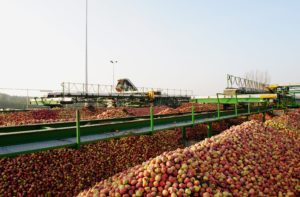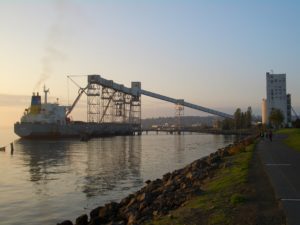
The Ukrainian-Estonian Chamber of Commerce (UECC) has started work in Tallinn (Estonia), the chamber said in a press release.
Vitali Galitskih, the head of the Tallinn office of the Ilyashev and Partners law firm, and Aleksandr Timarov, the CFO of Elme Messer in Estonia, became members of its board.
“The Chamber plans together with the Embassy of Ukraine in Estonia and the Embassy of Estonia in Ukraine to assist in establishing contacts and organizing cooperation between Estonian and Ukrainian companies, and also promote their interests in government authorities,” Galitskih said.
The company did not specify the number of member companies, citing the fact that negotiations are still underway.
Some 3,431 Ukrainians got the status of e-resident of Estonia. This is the third largest indicator among foreigners. Ukrainian e-residents founded the largest number of companies among foreign entrepreneurs in Estonia – 729, according to the press release.
Terra Food, one of the largest dairy producers in Ukraine, since the beginning of 2019 first shipped dairy products to Gabon, Iran, Bulgaria, Macedonia, and Palestine.
According to a report on the company’s website, the number of countries to which the company exported dairy products exceeds 60.
“Opening new markets is an important task in the company’s export activities, but the most important thing is to further develop the distribution of the brand in the export market, build long-term relations with business partners, and this is the strategic task of the export department of Terra Food,” the report says.
The group noted that the export development strategy envisages the opening of new markets, as well as the development of the range and increasing the volume of products in the major markets.

T.B.Fruit, one of the largest processors of fruits and berries in Ukraine, has begun the construction of the eighth plant of the group for processing fruits and berries in Brzostowiec (Poland), investment in which will amount to EUR45 million, founder of T.B.Fruit Taras Barschovsky has said. “The capacity for apple processing will be 300,000 tonnes, strawberries 10,000 tonnes, cherries 6,000 tonnes, raspberries 12,000 tonnes, currants some 7,000 tonnes per year. Production start is scheduled for July 2020,” he told the Interfax-Ukraine agency.
According to Barschovsky, investments in the plant are estimated at EUR45 million.
T.B.Fruit is a vertically integrated international group of companies with a closed production cycle (growing raw materials, processing, transportation).
The group of companies was established in July 2011 after the consolidation of all the assets of businessman Taras Barschovsky.

The grain terminal of MV Cargo, a joint project of MV Cargo with Cargill (the United States) in Pivdenny port, has launched the second railway line.
“In May, the grain terminal of MV Cargo launched the second railway line. Now we will be able to accept grain twice as fast – 24 wagons simultaneously on two tracks. At the same time, we will be able to unload four cars at the speed of one car in three minutes,” according to a report on Facebook.
MV Cargo expects that such rates will allow increasing the average daily unloading to 300 wagons, which is equivalent to 18,000 tonnes per day or up to 540,000 tonnes of grain per month.
As reported, MV Cargo postponed the official opening of the terminal until September 6, 2019.

The Odesa branch of the Ukrainian Sea Ports Authority and Brooklyn-Kyiv have signed a memorandum on the completion of construction of a grain terminal at Odesa seaport.
According to an Interfax-Ukraine correspondent, the memorandum was signed during the Ukrainian Port Forum 2019 in Odesa.
On the part of the stevedoring company, the memorandum was signed by the director general and founder of Brooklyn-Kyiv, Yuriy Hubankov.
“On behalf of Brooklyn-Kyiv and Louis Dreyfus Company I want to thank the Ministry of Infrastructure, the Ukrainian Sea Ports Authority and the management of the Odesa branch of the Ukrainian Sea Ports Authority… I am sure that in September we will launch the project and give the port of Odesa an additional 3 million tonnes of transshipment,” Hubankov said.
From the Ukrainian Sea Ports Authority, the memorandum was signed by the head of the Odesa branch, Ihor Tkachuk.
“This project was started in 2008, but was suspended for technical reasons. However, thanks to the new leadership of the Ukrainian Sea Ports Authority, a clear position of the Ministry of Infrastructure, we were able to move it forward and today it is already at the final stage of the completion. With this memorandum we confirm our plans to complete construction in due term. We are planning to continue dredging and improving the port infrastructure,” he said.